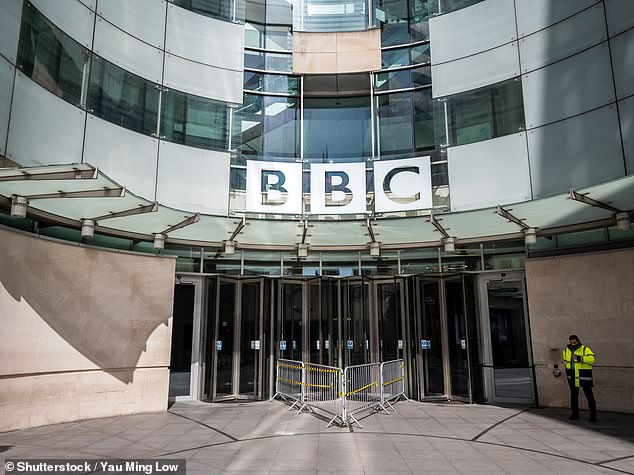The BBC is preparing to cut its current affairs programming in the evening as the number of licence fee payers plummet.
The corporation is grappling with a steep decline in its funding, with 300,000 households ditching the licence fee last year.
Now it is looking to slash its original current affairs requirements and has asked Ofcom to scale back existing television quotas.
It warned it will be forced to air more repeats in primetime slots after cutting spending on new shows.
Under Ofcom rules, the corporation must broadcast at least 450 hours of current affairs programming across BBC One and BBC Two over a year, of which 106 hours must be shown during peak time – between 6pm and 10.30pm – including a minimum of 45 hours on BBC One.
But the BBC has asked the regulator to replace this peak-time quota with a requirement to air 70 hours of original current affairs programming. The overall quota of 450 hours would remain unchanged.
The BBC argues that it would be forced to increase its use of repeats if the quota were maintained in its current form, but insists there will be no reduction in original programming.

The BBC is preparing to cut its current affairs programming in the evening as the number of licence fee payers plummet (stock image)
Corporation bosses also argue that setting primetime quotas is becoming increasingly redundant because more viewers are using iPlayer to watch flagship shows such as Panorama.
Ofcom said it was minded to accept the requested change, noting that quotas need to remain relevant in an era of streaming.
The broadcaster last year outlined plans to cut 155 jobs from its news operation in an effort to save £24million – 4 per cent of its annual budget.
In recent years the BBC has scrapped news shows such as the HardTalk interview programme, as it shifts to cheaper live and breaking news.
It also closed the Asian Network news service and made cuts to news bulletins on radio stations, including Radio 5 Live and Radio 2.
Deborah Turness, chief executive of BBC News, said the cuts were needed to ‘balance the books’.
It is part of director general Tim Davie’s efforts to save £700million to help plug the gap in the corporation’s finances after licence fee income dropped by 30 per cent in real terms between 2010 and 2020 after a series of freezes and cuts to the levy.
A BBC spokesman said: ‘These proposals reflect changing viewing habits and aim to focus on delivering new, high-quality content while achieving greater value for money for licence fee payers.
‘We remain committed to providing high-impact current affairs programming.’
An earlier version of this article said that the BBC planned to cut back its news coverage to save money. In fact, the BBC intends to reduce current affairs programming, not news.
Share or comment on this article:
BBC set to cut its evening current affairs programming as number of licence fee payers plummets
